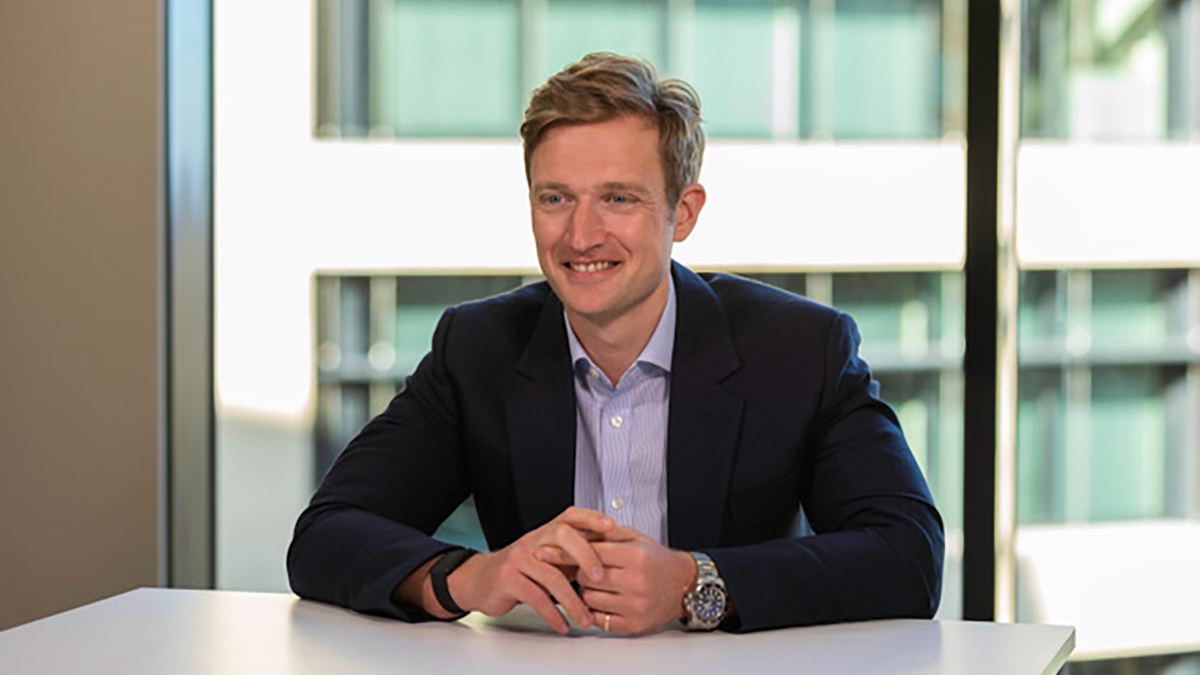Baillie Gifford, Moderna’s largest shareholder, shares investment strategies

Jack Torrance, investment specialist for Baillie Gifford's Health Innovation Fund, tells us how the organisation ensures its investments will have the most significant positive impact on all stakeholders within the healthcare ecosystem.
Much of the healthcare system has not changed in line with other sectors or caught up with the advances in digital innovation. The Health Innovation Fund aims to invest in companies that strive to help the industry progress for the betterment of healthcare providers and patients.
"We're looking at how healthcare is significantly changing the way that we understand, map, and then build medicines and how that can change by making health more operationally efficient," Torrance states.
The status quo in the healthcare sector is an antiquated and fossilised model, Torrance says. Improving efficiency in care will translate to a much more productive system for healthcare providers and patients.
Investment strategies
Health Innovation Fund concentrates its investments on highly productive technologies, hoping to create more personalised care that will lead to better outcomes. It currently hosts 40 companies in its portfolio.
A patient's healthcare experience currently centres on obtaining treatment only once they get sick. Ultimately, Torrance says healthcare will evolve to be far more preventative and personalised.
"We want to find the few companies driving this significant change. The investment thesis is bound by the idea that a lot of new technologies have emerged that are converging into the healthcare space," Torrance states.
"The technologies are completely changing how we can map or see disease and understand the drivers of illness through to making medicines that are personalised, quicker, more efficient, and ultimately safer and cheaper."
The Fund uses its resources to choose which companies fit its vision and can accomplish its ultimate goals.
"We've spent a lot of time, money and effort creating an ecosystem around us. As a firm, we value the viewpoint you get outside of finance, specifically in academia, thought leadership, or private markets where other investors are as long-term as we are. We aim to identify and understand these technologies early and then look for the best-in-class companies that will bring that to patients," Torrance states.
"We are bottom-up investors, so it's about owning a concentrated portfolio of these few special companies we find. We identify what trends we want to look into, and we'll come together and think about themes driving change. Often it'll be quite serendipitous."
For example, Torrance recently met with an expert from the Broad Institute who has been looking into gene therapies and says gene therapy can completely change how drugs are built.
Torrance's team considers this hypothesis by analysing the layers of which technologies are the key drivers or enablers within that theme. They then look for best-in-class companies within those enabling technologies.
The Fund pursues platform businesses that can make a single innovation that can be iterated upon and used across a multitude of opportunities.
Moderna's mRNA technology is the perfect example of one of the Health Innovation Fund's portfolio companies working across many indications.
"We invested in Moderna because we were excited about mRNA as a delivery mechanism because it's effectively like computer codes that instruct the cell. It's a naturally occurring process, but you can reprogramme that messenger RNA to do what you want and then put it into the body and use it for a multitude of indications," Torrance states.
When Health Innovation Fund first invested in Moderna, it had one candidate for mRNA use. It now has 47 different candidates that are all biologically similar.
Even if you're unsuccessful in one iteration, it doesn't mean that what has been learned or discovered can't lead to a greater probability of success in another indication, especially when it comes to certain modalities such as genetic medicine or cell or gene therapies.
Portfolio companies
Some examples of Health Innovation Fund's investments in cell therapies include companies focusing on personalised oncology treatments.
Baillie Gifford has owned Genmab, a Danish biotechnology company that creates antibody therapies for cancer, for 12 years. During that time, the company has gone from a small early-stage biotech organisation to one of the largest biotech companies in Europe.
"Effectively, they create antibodies that can train one's immune system to go after a specific cancer cell. Cancer is a somewhat unique disease; in almost every case, cancer is a mutation of one's own cells. So, it's a highly personalised disease," Torrance states.
Chemotherapy, the current standard of care for cancer treatment, can be harmful to both the cancer cells and the body's healthy cells.
"Antibody therapy is much more precise, and it will go after the cancer cells specifically to destroy those cells. The way Genmab sees it, cancer will become a chronic condition in five to 10 years. You receive antibody therapies frequently to manage your disease and stop it metastasising and growing," Torrance states.
Another company in the space is UK-based Exscientia. They develop drugs by revitalising the small molecule approach to cancer and building a personalised drug-free effect.
"You take a biopsy of the tumour and take some cells, sequence them, and then they have an algorithm that will go through every known treatment for cancer and build molecule-by-molecule a drug specifically for one's cancer," Torrance states.
Exscientia currently has three candidates in phase one trials.
"Because it's all in silico in the model of the human body, you can make tweaks and changes, and understand how the drug will react and then before you put it anywhere near a mouse, anywhere near a monkey, anywhere near a person, you can then be far more certain that it's going to work. This is the sort of hypothesis behind it," Torrance states.
"It's now in humans for the first time. They just published Phase 1A last week, which is the safety profile. It could completely change how we treat cancers."
Moderna has also created a personalised cancer vaccine, a similar idea where the vaccine is built against the specific cancer one has in the body.
"All of this would be impossible without the algorithm's power to make those tweaks and changes and understand how the molecules behave. It's pretty exciting," Torrance states.
"I only joined this team four years ago, and you go from what we were thinking back then was science fiction, and it's now science fact. It's amazing how quickly it's progressing. What we're ultimately hoping to do is help drive much more equitable access by providing therapies that are not only more effective, but cheaper, and actually address diseases better."
About the interviewee
 Jack Torrance is the Investment Specialist for the Health Innovation Strategy, having joined Baillie Gifford in 2019 in the Clients Department. Prior to joining Baillie Gifford, he was an Infantry Officer in the British Army for 8 years, completing two combat tours in Afghanistan and Iraq. He then worked for an NGO in Syria and Libya. Jack graduated BA in Middle Eastern Studies from the University of Exeter in 2011 and speaks fluent Arabic.
Jack Torrance is the Investment Specialist for the Health Innovation Strategy, having joined Baillie Gifford in 2019 in the Clients Department. Prior to joining Baillie Gifford, he was an Infantry Officer in the British Army for 8 years, completing two combat tours in Afghanistan and Iraq. He then worked for an NGO in Syria and Libya. Jack graduated BA in Middle Eastern Studies from the University of Exeter in 2011 and speaks fluent Arabic.
About the author
 Jessica Hagen is a freelance life sciences and health writer and project manager who has worked with medical XR companies, fiction/nonfiction authors, nonprofit and for-profit organisations, and government entities.
Jessica Hagen is a freelance life sciences and health writer and project manager who has worked with medical XR companies, fiction/nonfiction authors, nonprofit and for-profit organisations, and government entities.











